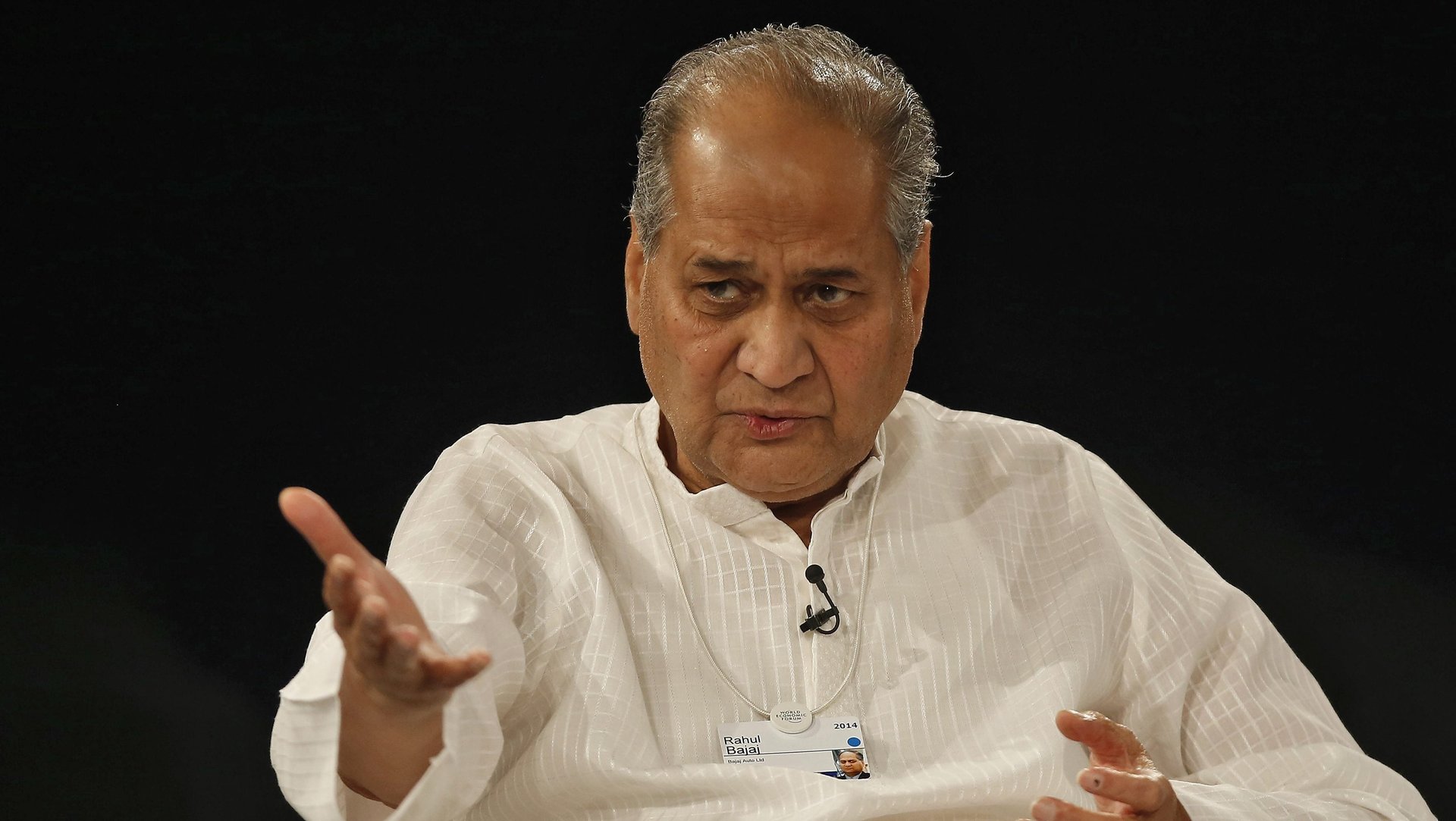Rahul Bajaj was the rare Indian industrialist who spoke truth to power
Rahul Bajaj, India’s auto industry veteran, never minced his words.


Rahul Bajaj, India’s auto industry veteran, never minced his words.
“…You are doing good work but if we criticise you, there is no confidence that you will appreciate that. I may be wrong. But we all feel that (way),” he told India’s all-powerful home minister Amit Shah during an industry event in 2019.
Bajaj was calling out the Narendra Modi government for allegedly not responding well to criticism. He prefaced it by saying that he was “born anti-establishment” and that his concerns were “minor.”
The 83-year-old philanthropist-businessman died on Feb. 12 following a prolonged illness. Bajaj, survived by three children—sons, Rajiv Bajaj and Sanjiv Bajaj, and daughter Sunaina Kejriwal—had stepped down as chairman and full-time director of Bajaj Auto in April 2021 after helming the company for over 50 years.
Tributes are still pouring in for the Padma Bhushan awardee, who was cremated yesterday ( Feb. 13) in Pune.
The outspoken Rahul Bajaj
Bajaj was widely known for never overly trying to be politically correct.
He often stood up against the establishment to say what he really thought. In 2019, he called out India’s ruling Bharatiya Janata Party (BJP) for not being able to control the incidents of lynching across the country. Not surprisingly, his remarks didn’t go down well with the government.
This was soon followed by a signature Twitter attack on him by supporters of the ruling party.
Now, many of them have expressed sadness over the demise of a skilled businessman and a visionary entrepreneur.
Bajaj, an MBA from Harvard Business School, began his career as a deputy general manager in his father Kamalnayan Bajaj’s team and went on to become CEO in 1968. The Bajaj Group was founded by his grandfather, Jamnalal Bajaj, in 1926.
After he took charge, Rahul Bajaj played a significant role in the group’s holistic growth and diversified it into general and life insurance, investment and consumer finance, consumer goods, steel and metal, and even travel.
It was in his tenure that the company’s flagship Bajaj Chetak scooter became an aspirational symbol for India’s middle class.
Under him, Bajaj Auto’s turnover grew to Rs12,000 crore from a mere Rs7.2 crore ($952,664), scooters becoming the firm’s mainstay. This success came despite severe policy hurdles in India in the early 1990s.
“Spine of Indian business cracks”
The chairman of India’s largest car manufacturer, RC Bhargava, calls him a “born leader” and someone who always knew the “ground realities.” Harsh Goenka, chairman of India’s RPG Group, called Bajaj the “spine” of Indian business.